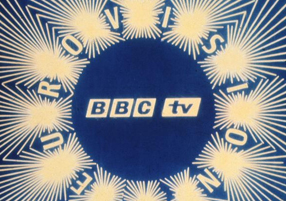Eurovision
It's that time of year again when representatives of countries in Europe and beyond don their spangly outfits, get their dancing shoes on and gear up to sing their hearts out.
In 1950 23 broadcasting nations from across Europe joined together to form European Broadcasting Union (EBU) and came up with the idea to do battle through the medium of song. Which on the face of it was a hugely ambitious project for its time, particularly as satellite broadcasting was yet to be invented, but even with so many countries joined together for the first time, they managed to pull it off, and the first ever Eurovision Song Contest was held in Switzerland. The Contest has been broadcast every year since its inauguration in 1956 and is one of the longest-running television programmes in the world.

The format of the Contest has changed over the years, though the basic tenets have always been thus: participant countries submit songs, which are performed live in a television programme transmitted across the Eurovision Network by the EBU simultaneously to all countries. A "country" as a participant is represented by one television broadcaster from that country. After all the songs have been performed, the countries then proceed to cast votes for the other countries' songs, and the song with the most points is declared the winner, and then the winning country will host the event the following year.
Eurovision has, over the years, become known for questionable music, bizarre performances and political voting. It's amazing how many countries have awarded top marks to their neighbours time and time again.
It's also launched the careers of some of pop's biggest ever sellers, including ABBA, one of the most successful bands of all time, and, believe it or not, Celine Dion. Quite a few acts have gone on to reasonable success, including Lulu, Brotherhood of Man, Bucks Fizz and Johnny Logan, who incidentally is the only person to have won Eurovision three times - twice as a performer and once as a composer.
Eurovision's most famous winners - Brighton in 1974 with 'Waterloo'. Incredibly the British jury gave 'Waterloo' no points at all. 'Waterloo' went to no.1 in the UK charts, the first of their 9 number ones.
Eurovision is now in its 53rd year, and it's still going strong. Frighteningly, an estimated 100 million people across the world watch it every year, which makes it one of the world's most-watched non-sporting events.
But for many people the joy of Eurovision is the running 'commentary' provided by Sir Terry Wogan,
Sir Terry has been the UK's bemused guide to the Eurovision since the 1970s, and the permanent TV commentator since 1980.
"That's the same song the French have been singing since they hung the washing up on the Maginot Line"
"There's not enough silliness in the world. Eurovision helps to keep it balanced."
"It's a battle between the songs and the hair... and the hair's winning"